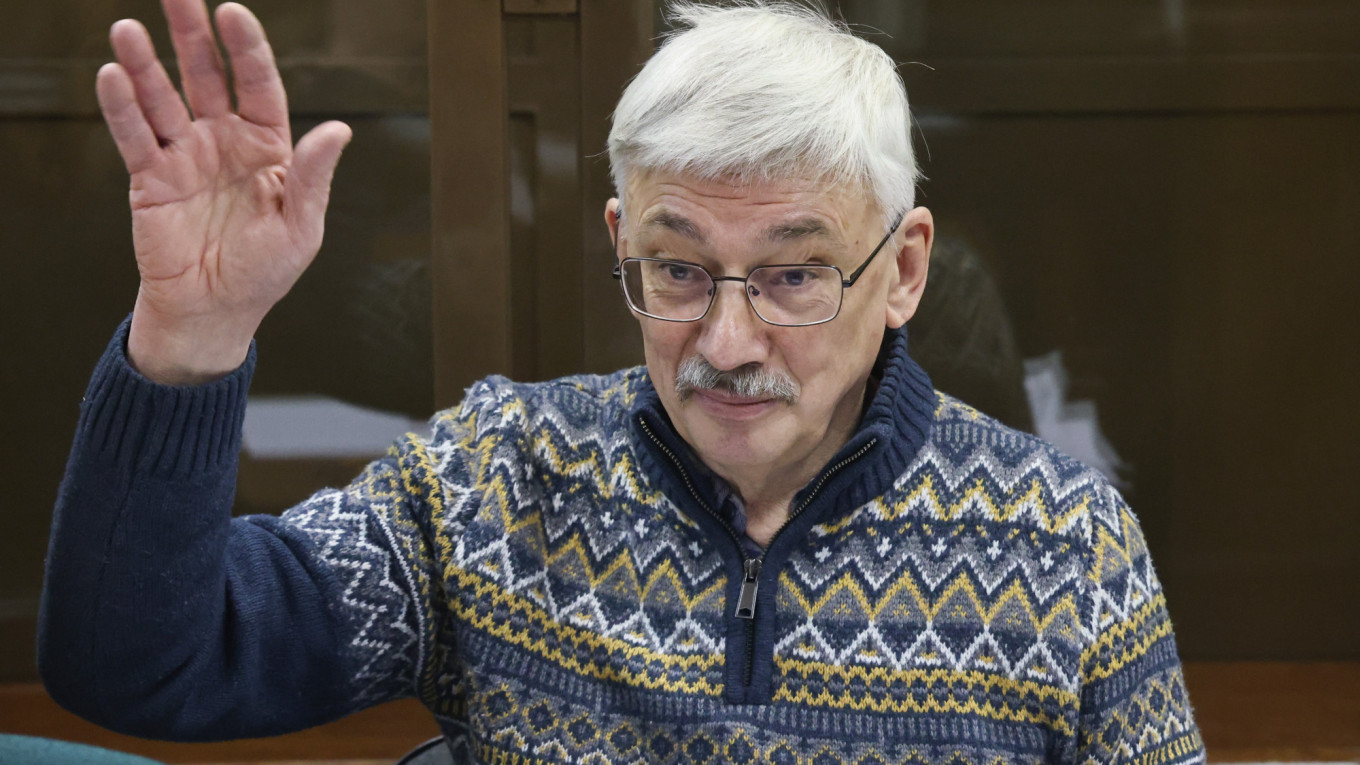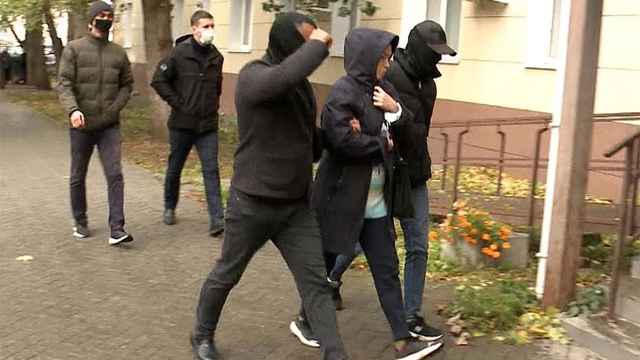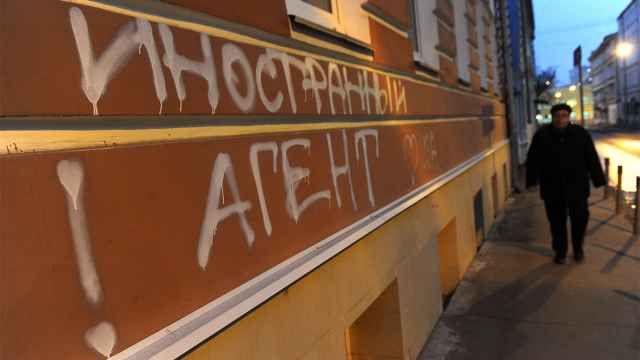Russia on Friday named veteran human rights campaigner Oleg Orlov, head of the Nobel Prize-winning Memorial group, a "foreign agent."
Moscow has labeled hundreds of activists and independent journalists "foreign agents" in recent years as part of a sweeping crackdown on dissent.
Russia's Justice Ministry said Orlov "opposed the special military operation in Ukraine, disseminated false information about decisions taken by public bodies of the Russian Federation, [and] participated in the creation of messages and materials for foreign agents."
Orlov, 70, was fined last year for "discrediting" Russia's Armed Forces — one of the new censorship laws Russia brought in to stifle criticism of its offensive on Ukraine.
His Memorial organization was the most prominent and respected human rights group inside Russia in the decades after the fall of the Soviet Union.
It established itself by battling to preserve the memory of victims of Communist repressions and campaigning against rights violations linked to Russia's brutal wars in Chechnya and beyond.
It was awarded the Nobel Peace Prize in 2022, months after Russian authorities outlawed the group as part of a sweeping crackdown against independent civil society.
Russia's Supreme Court ordered it to dissolve in December 2021, weeks before Moscow launched its military campaign against Ukraine, finding it had violated the foreign agents law.
Its closure was seen as a stark example of how far political freedoms and human rights had been quashed under President Vladimir Putin's more than two decades in power.
Despite the pressure and as tens of thousands of anti-Kremlin campaigners fled the country, Orlov stayed in Russia and has tried to appeal the ruling that he "discredited" Russia's Armed Forces — marshalling support from Nobel Prize-winning editor Dmitry Muratov in court hearings.
The "foreign agent" designation carries Soviet-era spying connotations and is designed to cut off groups and individuals from their funding and support inside Russia.
Individuals named foreign agents are required to submit financial reports to the Justice Ministry and label all their communications and public statements with a lengthy disclaimer.
A Message from The Moscow Times:
Dear readers,
We are facing unprecedented challenges. Russia's Prosecutor General's Office has designated The Moscow Times as an "undesirable" organization, criminalizing our work and putting our staff at risk of prosecution. This follows our earlier unjust labeling as a "foreign agent."
These actions are direct attempts to silence independent journalism in Russia. The authorities claim our work "discredits the decisions of the Russian leadership." We see things differently: we strive to provide accurate, unbiased reporting on Russia.
We, the journalists of The Moscow Times, refuse to be silenced. But to continue our work, we need your help.
Your support, no matter how small, makes a world of difference. If you can, please support us monthly starting from just $2. It's quick to set up, and every contribution makes a significant impact.
By supporting The Moscow Times, you're defending open, independent journalism in the face of repression. Thank you for standing with us.
Remind me later.






